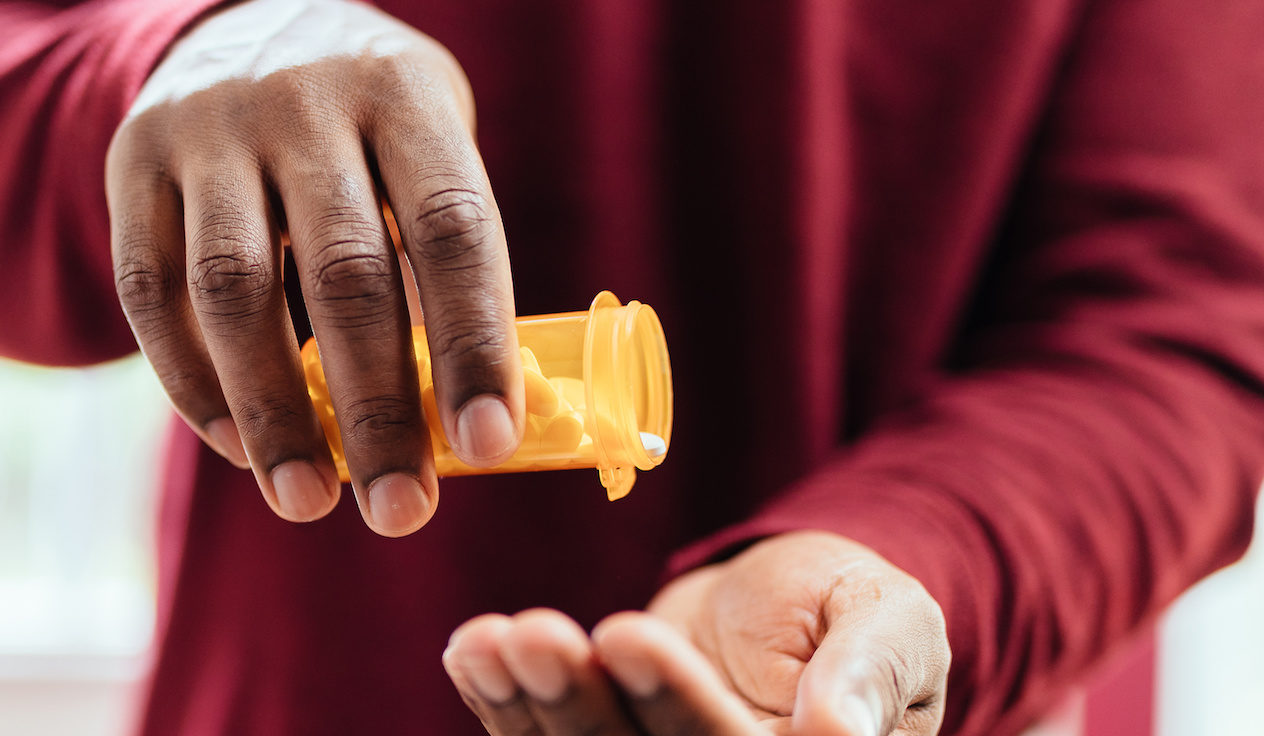Prescription abuse is a leading cause of overdoses in the US, and many of those end up being fatal. The effects of losing a loved one to a prescription drug overdose can be devastating, and it can tear a family apart. While often in the media you will hear about the epidemic of opioid abuse, since opioids are the biggest cause of overdoses, there are other prescription drugs like Xanax that contribute significantly to overdoses, as well.
Xanax is a brand name of the drug alprazolam and is in the family of benzodiazepines which are all drugs with a high potential for abuse. It is often prescribed to treat high levels of anxiety, or periodic panic attacks. Since anxiety is one of the most common mental health issues, drugs like Xanax can be common and easy to obtain for those who need them.
Unfortunately, despite its usefulness, it comes with a significant addiction risk. If you or someone you know or love may be addicted to benzodiazepines like Xanax, it is helpful to know how to recognize the possible signs of an overdose. When someone is in the midst of an overdose on prescription medication, time is of the essence, and being able to quickly recognize the signs of an overdose in progress, or the signs that one may be imminent, can save the life of the addict.
Signs of a Xanax Overdose
An overdose of Xanax can occur whenever someone takes more of a substance than their body or brain can handle. Frequently, in the case of a Xanax overdose, it is unintentional. Since most people on Xanax are not fighting suicidal ideation, it is usually the result of a mistakenly doubled dose or other similar mix-ups. If you are addicted to Xanax and are experiencing thoughts of self-harm or suicidal ideation, you should reach out to someone for help immediately.
While doctors will commonly prescribe anywhere from 0.25mg to 5mg to be taken up to three times a day, there are occasions where a higher dose may be indicated for someone with panic attacks. Often this can be a reason for an overdose, particularly if they have not taken it for some time and then take a large dose as the body’s tolerance to the substance has faded and it may be unable to process a dosage of the size taken. Doctors will try to balance the need for medication, along with the need for the lowest dosage possible.
If someone takes an unfamiliar dosage that ends up being too high, or intentionally or accidentally, mixes their Xanax with alcohol, they may experience a wide range of possible overdose symptoms. Since alcohol works to multiply the effects of benzodiazepines like Xanax, drinking with a regular dose can sometimes result in overdose symptoms or conditions. Some of the symptoms may even be delayed, and might not show up for an hour or more following the dose. Symptoms of a possible overdose can include:
- Drowsiness – This won’t be normal drowsiness, there may be an increased difficulty in communication or speech.
- Confusion – A state of sudden confusion is another strong indicator of a possible Xanax overdose. The person overdosing may suddenly become panicked or afraid.
- Blurred Vision – This symptom may not be as evident as others. However, if you are on Xanax and suddenly begin to experience blurred vision, you may want to seek help as a possible overdose could be the cause.
- Impaired Coordination – Many people will notice a lack of coordination, similar to being drunk. Motor skills, hand-eye coordination, and the ability to walk may all be affected. If you are on Xanax and suddenly feel a decrease in coordination or impairment of your ability to walk or interact with your surroundings, you should seek immediate medical help.
Side-Effects of a Xanax Overdose
If someone has overdosed on Xanax, there are more serious physiological symptoms that will become present. An overdose may cause slurred speech, hypotension, and in some cases depression of the respiratory system to the point of unconsciousness and unresponsiveness. Additional side effects of a Xanax overdose can include weakness and general fatigue that consistently put the user at risk of falling. The final and most serious side effects of a Xanax overdose are hallucinations, followed by coma, and death. Death is more likely if combined with other drugs.
Xanax Overdose Withdrawal Symptoms
One of the dangers with Xanax and other benzodiazepines is that if they have been taken regularly, they should not be stopped suddenly. The prescribing doctor will likely begin a plan of tapering doses that will eventually wean the use off of the medication. During withdrawals, users can experience a wide variety of symptoms, collectively called benzodiazepine withdrawal syndrome, including:
- Headaches
- Blurred vision
- General muscle pain
- Muscle tremors
- Diarrhea
- Increased sensitivity to light and sound
- Loss of appetite
- Insomnia and nocturnal restlessness
- Heart palpitations
- Paranoia
- Seizures

Symptoms will often be absent during the tapering dosage, but will frequently appear within hours of the last dose. They will usually peak in less than a week, often just a few days, and will then begin to fade.
Do not attempt Xanax withdrawal without medical help, it is hazardous and can be fatal.
Treatment for a Xanax Overdose
Treatment for Xanax overdose will require hospitalization and supervision. Immediately the victim will require triage to prevent exacerbation of the effects. Treatment for a Xanax overdose will often include:
- Cardiopulmonary resuscitation – CPR may be needed due to the depressing effects of Xanax on the respiratory system.
- IV fluid administration – This will help flush the benzodiazepines from the victim’s system.
- Intubation or ventilator use- The victim may need to have a breathing tube or ventilator used if they are not able to maintain adequate respiration.
- Antagonistic medications – Depending on the care team, a benzodiazepine antagonist can almost instantly stop and reverse the most dangerous symptoms of Xanax overdose. This may not be able to be utilized with long-term users, since the rapid detox can be very dangerous.
In order to get appropriate, 24/7 medical attention, an inpatient drug rehab facility may be required. As inpatient drug rehabs have professional medical staff on site 24/7, an individual detoxing off Xanax can rest assured knowing that their safety and well-being is in good hands all times of the day.
It is imperative that one reach out immediately before any potentially dangerous, or fatal, side-effects occur. Reach out if you or a loved one is struggling with an addiction to Xanax and get the help you need and deserve.


